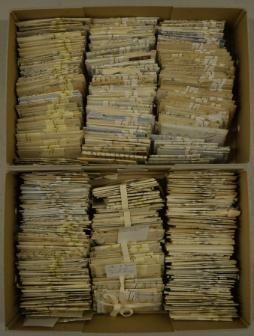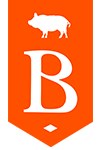Women's history
Introduction
The Borthwick Institute holds thousands of records of women’s lives from the 13th century to the present day. This guide introduces some of the most prominent themes and collections relating to the history of women in the UK and around the world, with links to online resources and suggestions for further reading. Women’s history can, of course, also include Lesbian and Transgender history and this has an additional dedicated research guide.
As with all archive collections current data protection laws means that personal data less than 100 years old will be closed, although researchers may still gain access to many of these records under special conditions: please contact us for details. Other private collections may have particular closure periods imposed upon them and staff can also advise about these.
Women and Faith
Records of church and faith can tell us a great deal about the public and private lives of women and their role as a driving force for religious and societal change. As well as the records of the established church, represented by the York Diocesan Archive and the parish archives, the Borthwick holds the records of many nonconformist churches, including Methodist chapels, the Society of Friends (Quakers), Unitarians and others, as well as private letters and diaries that reflect on personal faith. Many of these records reflect deeply patriarchal attitudes towards women, shaped by churches that were then, as often now, organised and administered almost exclusively by men. It was a world in which moral transgressions by women, whether real or perceived, were treated more harshly than those by men, and where women had fewer opportunities to hold positions of authority in their communities or congregations. This means that women often appear in the records of the established church in particular as transgressors, considered guilty of moral or sexual impropriety before the church courts, as victims of familial violence, or as recipients of parish or diocesan charity.
-580x803.jpg)
Such records can reveal much about women’s lives, from how they spoke and dressed, to their economic opportunities and their personal relationships and wider social networks. But they should not be the only context for understanding women’s relationship to church and faith. Women were also active members of their religious congregations with their own deeply held religious beliefs and convictions. They expressed these privately in the letters, diaries and commonplace books we hold in family archives, and publicly in published books and as preachers and agitants for change. From the papers of Quaker preacher Ann Alexander to the archive of Christian Howard and her successful campaign for the ordination of women in the Church of England, the Borthwick holds records of women whose faith inspired them to challenge conventional patriarchal attitudes and carve out a place in the church for themselves and the women who came after.
Collection Highlights
The probate archive contains a wealth of information about the lives of women from the thirteenth to the nineteenth century. From their networks of family and friends to how they lived, what they owned, how they dressed and their religious and cultural beliefs.
Quaker Family Papers
The Borthwick holds records of important Quaker families such as the Rowntrees, Tukes, Richardsons, Adams, and Seebohms. The women of these families were active in the Society of Friends and their letters, diaries and other papers give a vivid insight into their religious beliefs and how they shaped their thoughts and actions on some of the major social, political and moral issues of the day, including war, poverty, and the abolition of slavery.
The letters of the Hon. Henrietta Crewe, 1829-1874 [Milnes Coates Archive]
A daughter of the wealthy and influential Crewe family of Cheshire, Henrietta Crewe converted to Roman Catholicism in her twenties while living at Liège in Belgium. Her letters discuss her religious beliefs, visits to Catholic convents at home and abroad, her thoughts on key Catholic figures of the day such as Bishop Peter Augustine Baines of Prior Park, Bath, and her friendships with other Catholic women.
Papers of Dame Christian Howard
Christian Howard was active in the ecumenical movement and campaigned successfully for the ordination of women in the Church of England. Her personal correspondence and papers cover her work with the York Diocesan Board of Women’s Work, the Social Responsibility Council, and the Ministry for the Ordination of Women, as well as many other groups.
Maud McCarthy, whose papers form a substantial part of the MacCarthy Foulds Archive, was a musician and follower of the theosophical movement, an esoteric philosophy based on ancient religions and myths, in particular Buddhism. She was a member of The Theosophical Society and her papers include correspondence with fellow theosophists and her published writings on the subject.
Further reading
The Will of Ursula Simpson of Garton in Yorkshire, 1640:
The Wedding of Anne Mould [Please note this page includes explicit descriptions of domestic violence]
The Sextoness of Goodramgate - Borthwick Institute Blog
Lady Mary Arundell and the Italian Convent at Loughborough - Borthwick Institute Blog
Women at Work
Women have always worked, but the understanding and recognition of this work has changed greatly over time. Historically ‘women’s work’ was associated with a woman’s role in the home which was as devalued as it was unpaid. However archival records reflect not only the enormous importance, scope and skill of such domestic management, but also highlight the myriad of ways in which women worked outside of the home to support themselves and their families.
The numerous estate and family records held at the Borthwick document the work of women in running households, both large and small. These include household accounts and correspondence, cookery books, household budgets, and records of domestic staff. In turn archives of organisations and businesses demonstrate the variety (and limitations) of occupations available to women over the centuries. Women’s occupations appear in our church court and probate records. From the 17th century, church and medical archives together tell the story of women’s gradual acceptance as midwives, nurses, and doctors. Women write and publish books, as seen in our extensive Quaker and other nonconformist archives, and they teach at schools like the York Grey Coat charity school and the fee paying Mount School for girls, and at the University of York. They act, write for theatre, film and television, and they establish businesses, sometimes in the face of significant and influential opposition. The fortunes of the Tuke and Rowntree families owe much to the enterprise and tenacity of the 18th century York Quaker Mary Tuke who founded her own grocery business on Walmgate and defied the city’s powerful Merchant Adventurers Company to do so. They also work the land, as members of the Women’s Land Army during the Second World War, and as farmers and horticulturalists.
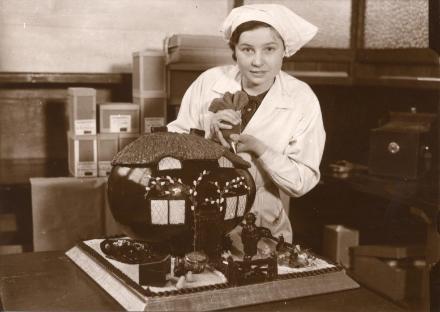
That women often struggled to support themselves with the paid work available to them is attested in the archives of charitable organisations such as Lady Wandesford’s Charity and the Lady Conyngham Trust. Progress was often slow; as women began to enter the workforce in larger numbers in the 19th and 20th century the disparity in pay and working conditions for male and female employees is apparent in the archives of companies like Rowntrees & Co, Terry’s of York, and Vickers scientific instrument makers. But progress was made, however slowly, and our records document the varied experiences of women in their working lives, the challenges they faced, and the hard won recognition of the value of their labour.
Collection Highlights
Hickleton Papers: Household Management
The household management records within the Hickleton Papers provide a detailed account of the work involved in running a large, aristocratic household, between the 18th and the 20th century, including as it does household accounts, recipes, inventories, and related correspondence.
Lady Conyngham’s Trust Archive
Lady Conyngham’s Trust provided annuities to poor women of York and to clergymen’s widows, and their handwritten applications, dating from 1816 onwards, demonstrate the financial hardships they faced and the range of paid work they undertook to survive.
By the early 20th century the Rowntree confectionery company was one of the largest employers in York. The company archive provides a wealth of information about women as producers and consumers of their products, whether working in the factory itself, depicted in their advertising campaigns, or analysed for their purchasing power as customers.
Records of the Women’s Land Army [Milnes Coates Archive]
The archive of Lady Celia Milnes Coates, County Chairman of the Women’s Land Army in the North Riding of Yorkshire, gives a unique insight into a vital wartime organisation and the lives and experiences of the women who carried out its mission between 1938 and 1950.
Further reading
Women and Rowntrees on the Borthwick Institute website
The Sextoness of Goodramgate - Borthwick Institute Blog
Fertile Ground: Records of the Women's Land Army in North Yorkshire on the Borthwick Institute website (including link to introductory podcast)
Women and Medicine
The past two centuries have seen enormous advances for women in the fields of medicine. The Borthwick’s extensive health archives reflect this change, as women entered the medical profession as nurses and doctors, took up key roles in hospital administration, and contributed to important medical research. However these archives are far from the only records capturing the varied roles and experiences of women in this area. For more than 500 years women have appeared in our archives as both the providers and recipients of medical care; as patients first and foremost, but also as midwives, nurses, and as managers of households, large and small, responsible for treating everyday illness and injury.
The documented history of women as medical practitioners in the archives dates back to the 16th century when midwives, as well as surgeons and apothecaries, were required to apply for an episcopal licence to practise their profession. Their names are captured in surviving nominations and testimonial letters, as well as records of the church courts, providing the earliest official record of women in medicine until the late 18th century, when women begin to appear in our hospital archives - as matrons, nurses, administrative staff and domestic servants, and, eventually, as doctors and surgeons. Their professional concerns were later recorded in archives like that of the Leeds and District Association of Medical Women and its successor the Yorkshire Association of Medical Women.
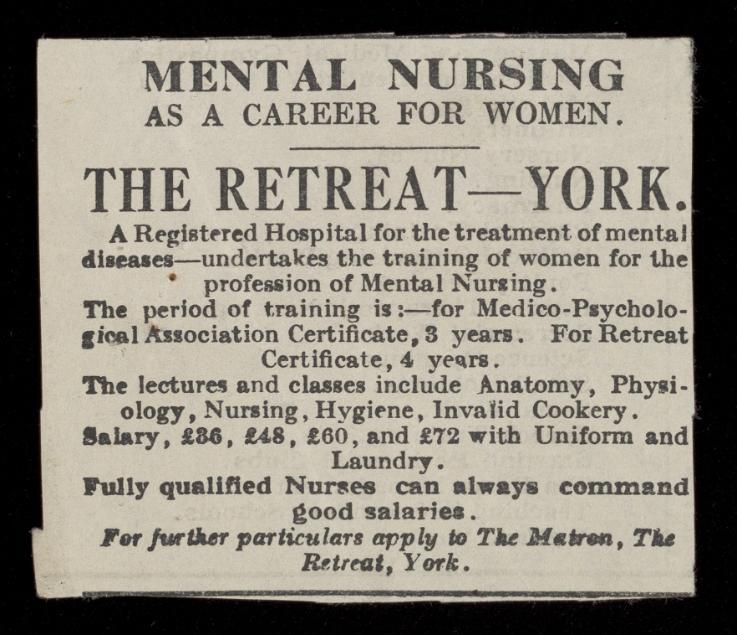
Within households and family circles women took a keen interest in their own health and those of their friends, family, and servants. Household records note ‘recipes’ for home made remedies for a wide variety of ailments and injuries, while private letters capture common health concerns. Women were often active and knowledgeable patients, writing to doctors and to each other to discuss their symptoms and treatments, share news about the latest medical discoveries, and exchange dietary advice. It is of course as patients that women appear most frequently in our medical archives, in our general hospital, maternity, and psychiatric hospital records, and their case notes and correspondence can reveal a great deal about their lives and about attitudes towards women more broadly.
Finally women were drivers of medical advances and research. Women of the Society of Friends, or Quakers, took an active role in the campaign for more humane treatment of the mentally ill, as evidenced by their private letters and papers and by the archive of The Retreat hospital. They supported the temperance movement and later carried out important research into the causes and treatment of alcoholism. Women such as May Kendall assisted in the pioneering Rowntree social studies that played a key role in the development of the British welfare state; others like Dr Margaret Barnet carried out extensive research into the provision of medical services in York and the history of its many hospitals.
Collection Highlights
Nominations of Midwives [York Diocesan Archive]
The series of midwife nominations, together with the earlier Faculty Books, provide a unique record of women practising their profession in Yorkshire, including as they do names and testimonial letters, often signed by other women, attesting to their skills and experience.
Yorkshire Association of Medical Women Archive
Founded to safeguard and promote the interests of medical women, the YAMW reflects the concerns of women in medicine from the earliest decades of the 20th century; including their standing in the wider medical community and matters relating to women’s health such as contraception, the introduction of the welfare state and improvements to maternity care.
The records of The Retreat Hospital, York, have been fully digitised and are available for free online. They give a wealth of information about women as both the recipients and providers of psychiatric care over more than 200 years. The archive includes copious patient records which, in addition to medical information, capture details of family life and the often significant effects of cultural and religious attitudes of the time. But the records also show the advance of women into the medical profession, as nurses, matrons, doctors and hospital administrators.
Further Reading
Charlotte Anderson and the North Yorkshire Lunatic Asylum on the Borthwick Institute website
Women and the Arts
The active and important contributions of women to artistic and cultural life have too often been overlooked. From the gifting and receiving of books in 14th and 15th century wills to the experiences of 20th and 21st century actors, directors, artists and writers; the Borthwick collections demonstrate the vital role women have played as creators and patrons of the arts.
Our estate and family archives show that women read widely and wrote often, and for personal enjoyment as well as for publication. Private correspondence, diaries and commonplace books include handwritten original poems, prayers and stories, alongside extracts from popular books of the day. Women share their opinions of the latest novels and of contemporary literary debates, from the authorship of ‘Jane Eyre’ as discussed in the Milnes Coates Archive, to reading recommendations included in the Mount School for girls’ quarterly magazines. Women supported themselves financially through publishing their own poetry and prose. The Tuke Family Papers include letters and poems concerning the York poet Charlotte Richardson, who was able, with the support of another York writer Catherine Cappe, to publish several volumes of her own work between 1806 and 1823. The Milnes Coates Archive includes letters by the novelist Sarah Harriet Burney which discuss, amongst many other topics, the completion and plans for publication of her book ‘The Romance of Private Life’ in 1839, as well as childhood and teenage letters by the novelist Florence Henniker.
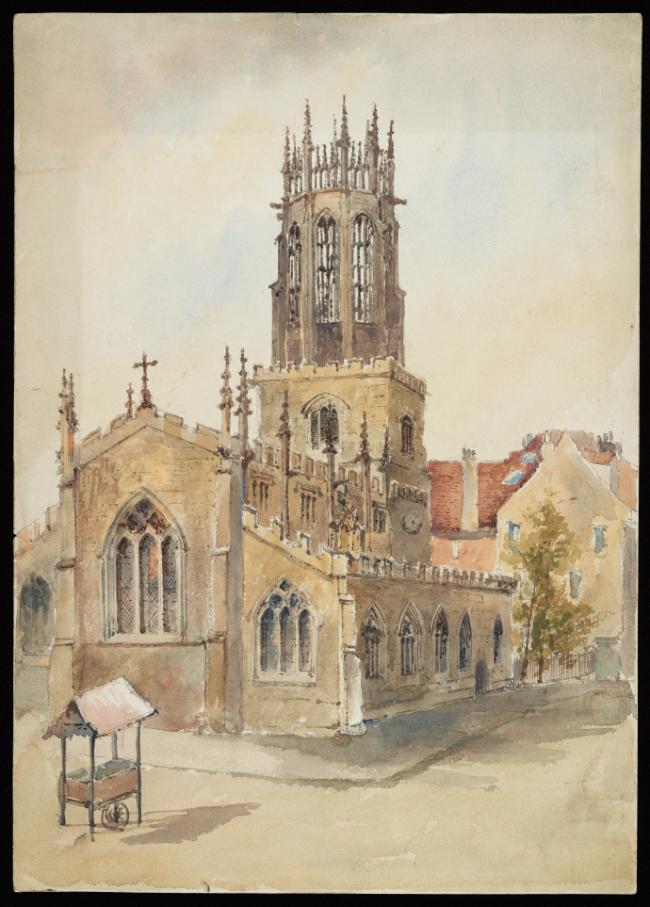
Finally the Borthwick holds a wealth of material relating to women and the theatre. Women first appeared on the English stage in the seventeenth century and one such contemporary actress, Northampton born Anne Bracegirdle, is named in a 1706 bargain and sale concerning the matter of a playhouse in Lincoln’s Inn Fields, London. Celebrated nineteenth century actresses Fanny Kemble and Sarah Siddons appear in the private correspondence of the Wood family, later Earls of Halifax, including correspondence between Kemble and patron of the arts Lady Georgiana Grey between 1842 and c 1886. The archive of actress Yvonne Mitchell continues this theme into the twentieth century. In recent decades women have achieved greater recognition for their work off the stage, reflected in the archives of playwright Julia Pascal and theatrical director Cordelia Monsey, as well as that of Gwen Coleman who played a central role in the establishment and administration of the Bulawayo Little Theatre in Zimbabwe in the 1940s and 1950s.
-300x371.jpg)
Interest in the visual arts also extended across both the public and private spheres. In middle and upper class households, drawing and painting in particular were widely taught as useful ‘feminine’ skills. Such lessons, as well as opportunities for sketching and painting, are frequently mentioned in private letters, and estate and family archives include numerous examples of the results. Chief amongst these are the nineteenth century artworks of Ann Reynolds and Margaret Hannah Reynolds, and the early twentieth century works of Mabel Leaf, a noted painter of stained glass whose work was exhibited in the USA in the 1930s. In the Milnes Coates Archive, Annabel Crewe combined both her love of literature and art in the 1840s by creating her own illustrations of favourite scenes from the novels of Charles Dickens, which she was able to show to the man himself and which she discusses in her letters to her sister.
Collection Highlights
Letters of Sarah Harriet Burney [Milnes Coates Archive]
The fourteen letters from Sarah Harriet Burney to Annabel Crewe provide a unique and valuable insight into her life in the 1820s and 1830s, describing her role as a tutor to the young Annabel, her travels on the continent, and her work as a professional novelist.
An accomplished artist, Mabel Leaf’s archive includes examples of her illustrations of stained glass in York churches and York Minster, as well as sketchbooks, paintings and drawings of topographical scenes, churches and other buildings in Britain and abroad in the early twentieth century.
Actress and writer Yvonne Mitchel made her stage debut in 1939 in a production of Great Expectations and appeared on screen for the first time in 1949. Her credits include Wuthering Heights in 1953 and Nineteen Eighty Four in 1954. Her archive of scripts, press cuttings, scrapbooks, photographs and other ephemera offer a fascinating glimpse into the life of a busy working actress from the 1940s to the 1970s.
The first woman to direct a play at The National Theatre, the career of Julia Pascal encompasses acting, writing, teaching and directing. She formed the Pascal Theatre Company in 1983 and her archive includes development notes, drafts, rehearsal and performance scripts, production notes and reviews for many of her works.
Further reading
The Letters of Frances Kemble at the Borthwick Institute
Lorna J. Clark, 'Discoveries in the Archives: New Sarah Harriet Burney Letters at the Borthwick Institute for Archives', in Tulsa Studies in Women's Literature, Volume 40, Number 1, Spring 2021
Sally-Anne Shearn, 'An early description of Lady Charlotte Guest, translator of The Mabinogion' in Morgannwg: The Journal of Glamorgan History, Volume LXII, 2018.

